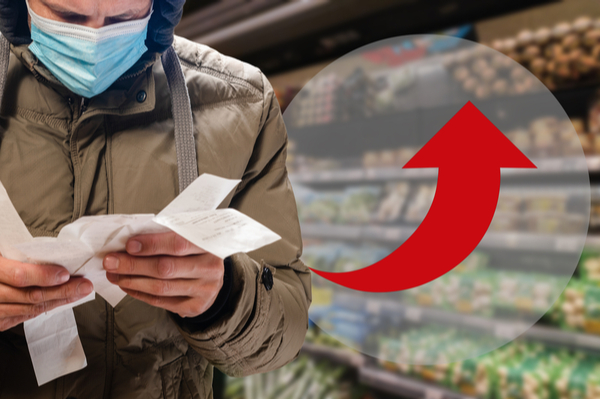// Higher oil prices drove up non-food prices in January, new data reveals
// The rise was led by food prices, which were up 2.7%
Shop prices climbed at their fastest rate in nearly a decade to reach 1.5% in January, according to the retail industry as the cost of oil, furniture and flooring shot up.
Figures from the British Retail Consortium reveal that shop price annual inflation accelerated to 1.5% in January, the highest rate since December 2012 and up from 0.8% in the previous month.
The rise was led by food prices, which were up 2.7%.
READ MORE:
- Pre-pandemic food shop routine returns as prices rise 3.8%
- Primark pledges to freeze prices despite rising inflation
“January saw shop price inflation nearly double, driven by a sharp rise in non-food inflation. In particular, furniture and flooring saw exceptionally high demand leading to increased prices as the rising oil costs made shipping more expensive,” BRC chief executive Helen Dickinson said.
“The rise in shop prices is playing into wider UK inflation, which is pushing cost of living to the forefront of the political agenda. Many households will find it difficult to absorb the additional costs, as well as others on the horizon.
“Retailers are working hard to cut costs, but it would be impossible to protect consumers from any future rises. As commodity prices, energy prices and transportation costs continue to rise, it is inevitable that retail prices will continue to follow in the future.”
The retail price of UK furniture was up by a record 12.5% on a year before in December according to the Office for National Statistics, in the fourth consecutive month of double-digit price rises.
A rise in the cost of materials, such as wood, and fuel has combined with a an increase in shipping and labour costs, which have affected many types of manufacturers and retailers.
Raw materials and shipping costs have also pumped up the prices of flooring, including carpets.
Soaring food costs and the energy bill crisis drove inflation to 5.4% in the 12 months to December, up from 5.1% the month before, in another blow to struggling families and Dickinson warned of further price rises, on top of higher household bills.
The last time inflation was higher was in March 1992, when it was 7.1%. And with gas and electricity costs set to rise further in the spring, analysts predict it will reach that level again.
“As costs rise, consumers are cutting back. Most commonly, those we surveyed say they will reduce spend on eating out, takeaways and clothing, to offset their overall household budget being squeezed,” Linda Ellett, head of consumer markets, leisure and retail at KPMG UK, said.
“Increasingly, consumers are searching for promotions or cheaper alternatives. Of course, businesses operating in this landscape are facing their own inflationary pressures and they face tough decisions on whether and how to increase prices.”
The latest evidence on inflation comes after data showing that households’ annual grocery bills are on track to rise by £180 this year.
Grocery prices rose 3.8% over the four weeks to 23 January compared with the same period last year, according to the market research company Kantar. It said prices are rising fastest for fresh beef and poultry, savoury snacks, crisps, skincare and cat food but are falling for fresh bacon, vitamins and beer.
Click here to sign up to Retail Gazette‘s free daily email newsletter
















